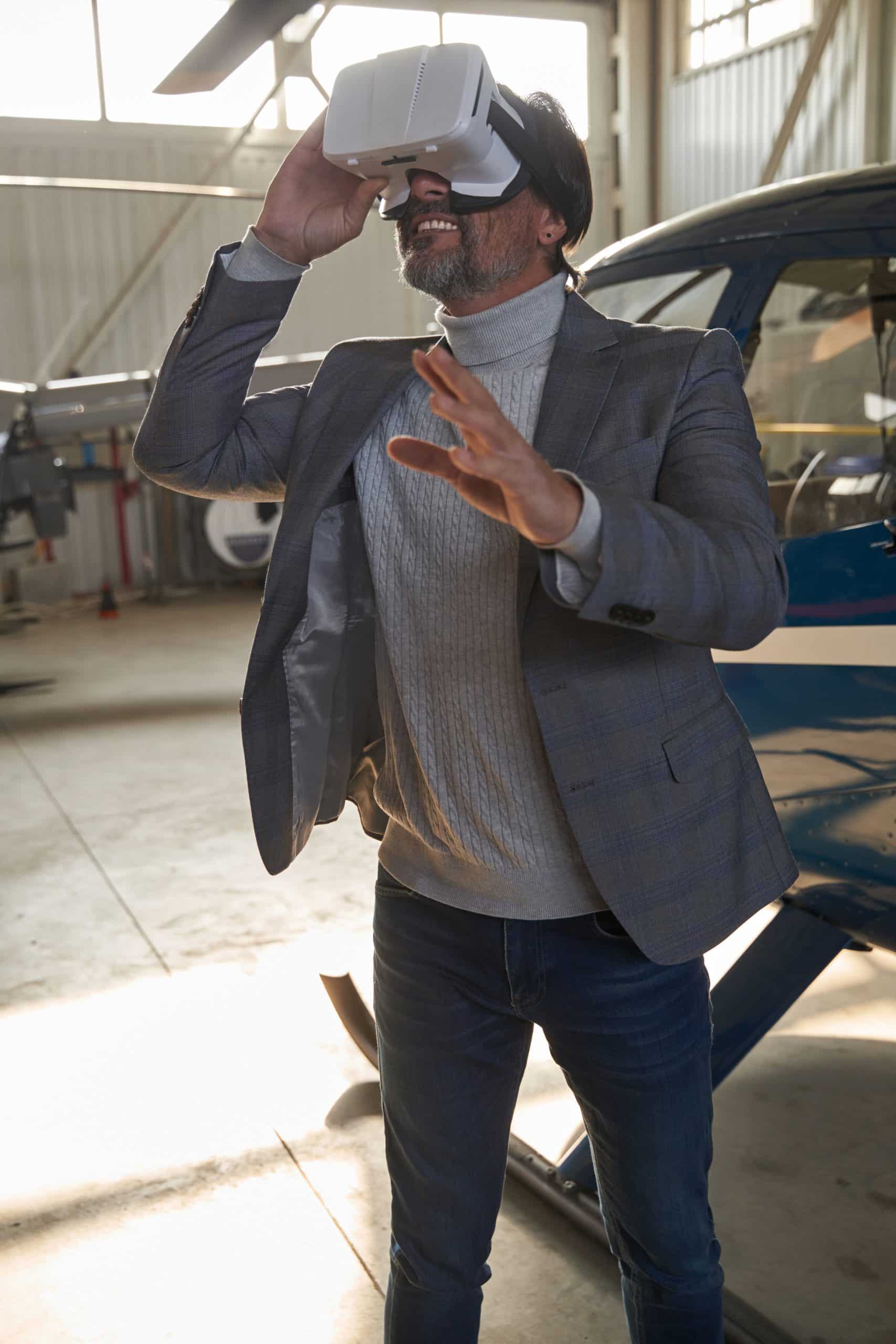What Are the Emerging Business Opportunities in Virtual Tourism?

Virtual tourism — a novel concept that combines the thrilling prospects of world exploration with the cutting-edge technology of virtual reality (VR). As we delve further into the 21st Century, the intersection of these two phenomena is creating an entirely new sphere of experience. This fusion has given birth to a plethora of opportunities for businesses to tap into and capitalize on. In this comprehensive guide, we will delve deep into the emerging business opportunities in the realm of virtual tourism.
The Rise of Virtual Reality in Tourism
Virtual reality — the technology that allows you to immerse yourself in a digital environment — has been on the rise in various sectors. The tourism industry is no exception. The fusion of VR technology with tourism has given birth to a new market: Virtual Tourism. This sector provides customers with a unique, immersive experience of exploring various destinations without having to leave their homes.
In the same genre : What Are the Strategies for Implementing AI in Customer Relationship Management?
In a world where physical travel can sometimes pose logistical challenges or health risks (think pandemics), it’s no surprise that virtual tourism is gaining popularity. For businesses, this opens up a new frontier of opportunities. From virtual tour creation to VR equipment rental, the prospects are expansive.
Virtual Tour Experiences
One of the primary offerings in this field is the creation of virtual tour experiences. These tours allow users to explore famous locations, like the Louvre Museum or the Great Wall of China, through high-definition, 360-degree videos. Some even offer interactive elements, such as clickable information points or audio guides.
Also read : How Can AI Be Used to Optimize Energy Efficiency in Commercial Buildings?
Google has been a significant player in this niche with its ‘Google Earth VR’ and ‘Street View’ offerings. However, there’s room for more specialized businesses to step in. Companies can capitalize on creating detailed, immersive tours of specific locations, or cater to niche markets, such as architecture enthusiasts or history buffs.
Marketing Virtual Destinations
The marketing of these virtual destinations is another area ripe for business opportunities. Just like in real-world tourism, potential travelers need to be enticed to visit these virtual destinations. This requires a new breed of marketers who understand both the tourism industry and the VR environment.
For instance, businesses can create captivating trailers or digital brochures for their virtual tours, offering a sneak peek into what customers can expect. They can also leverage social media and other digital marketing channels to reach potential customers.
VR Equipment and Software Development
While many people own VR headsets for gaming, there are still many who do not have access to this technology. This presents an opportunity for rental services or even the development of more affordable VR equipment specifically designed for virtual tourism.
On the software development side, there’s a need for robust platforms that can host and stream these immersive experiences. Businesses could also develop features that enhance the virtual tour experience, such as the ability to take virtual ‘photos’ or ‘notes’ during the tour.
The Metaverse and Virtual Reality Tourism
The rapidly evolving metaverse, a collective virtual shared space created by the convergence of physical and virtual reality, offers a multitude of opportunities in virtual tourism. This technology will allow for even more immersive and interactive experiences. Companies could create virtual replicas of real-world destinations or even entirely new, fantastical locations for users to explore.
Moreover, as the metaverse develops, businesses could also explore opportunities in virtual hospitality and entertainment. Imagine virtual hotels where users can ‘stay’ or virtual concerts they can attend — the possibilities are endless.
The Future of Virtual Tourism
While it’s clear that virtual tourism is a burgeoning market, it’s also a sector that’s swiftly evolving. As VR technology becomes more advanced and accessible, and as customers become more receptive to these digital experiences, the scope for businesses will only expand.
Whether it’s creating immersive virtual tours, marketing these experiences, or developing the necessary hardware and software, there are myriad opportunities for enterprising businesses. The key to success in this market will be staying ahead of technological advancements and meeting the changing demands of customers.
In the end, the merging realities of the virtual and the physical world are not just reshaping how we experience tourism but also how businesses operate within this industry. By embracing this shift, businesses can open up new revenue streams and achieve growth in a market that’s only set to expand. As such, virtual tourism represents not just the future of travel but also the future of business.
Augmented Reality in Virtual Tourism
Augmented reality (AR), a technology that superimposes digital information on the real world, is another avenue businesses can exploit within the virtual tourism market. Unlike VR, which creates a completely simulated environment, AR enhances real-world surroundings by adding digital elements. This technology can create a more interactive and informative virtual tour experience.
For instance, companies could develop AR-guided tours where users can ‘virtually’ walk through a historical site while seeing superimposed images or information about the site’s history. Or imagine a virtual tour of the Louvre where users can ‘click’ on a painting to bring up detailed information about the artwork and its artist.
The use of AR in virtual tourism can also extend beyond the tour itself. Businesses could create AR-enhanced maps or guides, allowing users to explore a city or location at their own pace. They could also develop AR games or challenges related to the site, adding an element of fun and engagement to the virtual tourism experience.
Businesses in the travel industry can collaborate with AR developers to create unique and engaging augmented reality experiences for their customers. The key is to find innovative ways to incorporate AR into virtual tours and other aspects of virtual tourism, transforming the way people explore and learn about new places.
Conclusion: The Virtual Tourism Market in the Post-Covid world
The Covid pandemic has undoubtedly accelerated the growth of the virtual tourism industry, proving that travel can indeed continue, albeit in a different form. It’s safe to say that virtual reality and augmented reality have brought about a paradigm shift in the travel tourism sector.
The potential of virtual tours and experiences to allow people to explore destinations from the comfort of their homes has captured the imagination of businesses worldwide. Companies are rapidly developing innovative business ideas to capitalize on this growing market. From creating immersive virtual tours to marketing these experiences on social media, the scope for businesses in the virtual tourism market is expansive.
However, businesses must remember that the key to capitalizing on this trend is not just about seizing the opportunities presented today. It’s also about anticipating future advancements in VR and AR technology and the evolving demands of customers. Businesses that are able to stay ahead of these trends will be well-placed to secure a significant market share in the global virtual tourism industry.
As we navigate the post-Covid world, the intersection of technology and tourism offers an exciting new frontier for businesses. By investing in virtual tourism, companies can not only survive in the travel industry but also thrive in the new reality business landscape. The Faroe Islands, for instance, are already leading in this area, offering "remote tourism" where visitors control a local guide through a virtual tour.
Ultimately, the fusion of the virtual and physical world is reshaping the tourism experience. By embracing this shift, businesses can open up new revenue streams and position themselves for growth in a market that’s only set to expand. In the end, virtual tourism is not just the future of travel; it’s the future of business.
